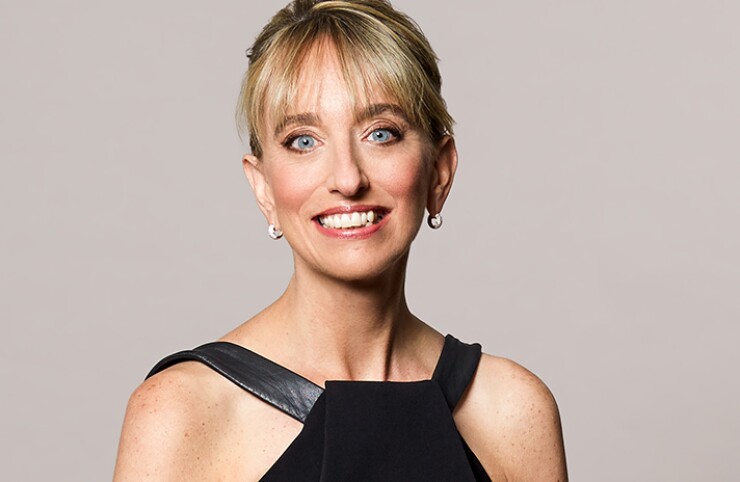Want unlimited access to top ideas and insights?
Since taking over as chief regulatory affairs officer at JPMorgan Chase in 2014, Sandie O'Connor has established herself as a leading advocate in banking for fine-tuning crisis-era rules.
One way she has pushed for change is by representing JPMorgan on a long list of industry forums — including serving as chair of the Federal Reserve committee charged with creating an alternative to the London interbank offered rate.
It's heady stuff, and O'Connor is proud to be part of an effort that has big implications for financial markets.
"I think we are changing the market landscape to make it better for all participants," said O'Connor, who is

In June, the Alternative Reference Rate Committee — which includes executives from big banks, hedge funds and other financial institutions — unveiled its recommendation for replacing Libor, the subject of rate-manipulation scandals after the global financial crisis.
The new rate, which the Fed will start publishing in 2018, is designed to reflect the rate of interest that lenders would charge a borrower perceived to have zero risk. It will be based on a broad range of "repo" rates paid in the market for short-term cash borrowings secured by U.S. Treasury securities.
Working on Libor reform is just one way that O'Connor, a 29-year veteran of JPMorgan, is making her mark on financial policymaking.
Following the Republican sweep in the 2016 election, O'Connor advised the Trump administration on regulatory reform. She also provided recommendations to lawmakers in Congress on the Financial Choice Act, a Republican proposal to overhaul key parts of Dodd-Frank.
See the most recent rankings:
While she bristles at the suggestion of rolling back financial protections, she insists policymakers have a responsibility to ensure the regulatory framework encourages lending and economic growth. Items at the top of her agenda this year have also included pushing for rule changes to boost mortgage lending, and removing the so-called gold-plating of U.S. capital and liquidity rules.
O'Connor is quick to note that, nearly a decade out from the financial meltdown, banks are much better capitalized, and the economy is on solid ground. That means now is the time to analyze the rules put in place during the crisis, to "achieve the best outcomes" for the economy overall, O'Connor said.
"Collectively, governments, policymakers and financial institutions have a right to have that conversation now," O'Connor said. "They did not have a right to have that conversation six years ago."
In some ways, O'Connor is an unexpected fit for her role. Unlike most policy wonks, she is neither an attorney nor a seasoned political operative. And in the staid world of financial policymaking, her expressive demeanor gives her a distinctive presence.
Read profiles of other JPMorgan Chase women in the rankings:
O'Connor got her start in banking on the trading floor at JPMorgan, and has held a wide range of roles on her way to the top ranks, including serving as the company's treasurer and as chief executive of its prime services unit.
What gives her an edge, she said, is that after decades of managing financial risk and overseeing JPMorgan's now-$2.5 trillion balance sheet, she knows firsthand how new regulations affect the business.
"When I see a policy come out, I can translate it into how money will flow and how clients will be impacted," O'Connor said. "That perspective from end to end really enhances and improves the conversation."
She looks forward to talking to her daughters someday about what she has accomplished at JPMorgan. Like most teenagers, though, her daughters, ages 13 and 16, don't think their mother's job is particularly cool, according to O'Connor.
But at some point, she hopes they'll be excited to learn about how she is working to shape financial policy, domestically and across the globe. "If my kids ever understood anything that I did, it would be nice to say, 'You know, mom is working on shifting Libor,' " O'Connor said, laughing.





